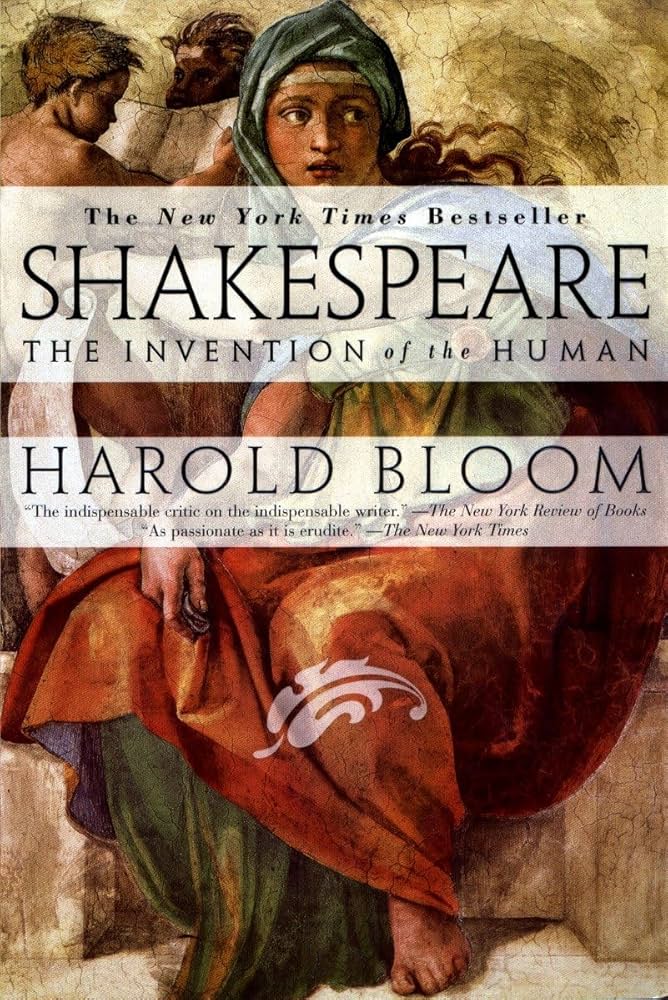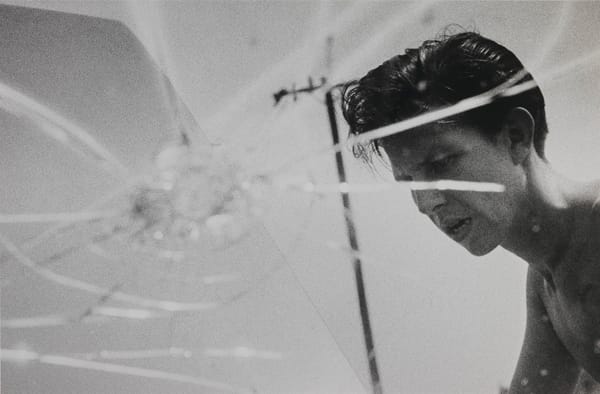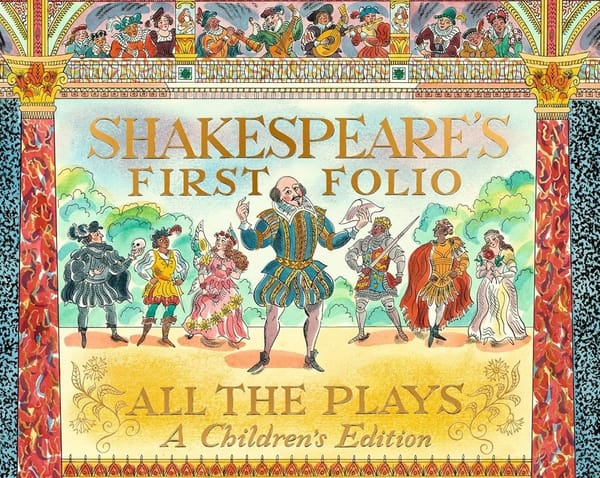The Great Update: How Shakespeare Invented Modern Human
Shakespeare's characters did something revolutionary: they changed. They learned. They grew. Most importantly, they heard themselves think.

In 1998, Harold Bloom made an assertion so audacious that it seemed almost sinful: William Shakespeare didn't merely write about human nature—he invented it. In his monumental work Shakespeare: The Invention of the Human, Bloom argued that our contemporary understanding of human consciousness, our capacity for self-reflection, and our ability to change through that reflection, were all, in essence, Shakespearean innovations. If we were to frame this in contemporary terms, Shakespeare provided humanity with its most crucial software update: Human Consciousness 2.0.
The One-Dimensional Characters Before Shakespeare
Before Shakespeare, literary characters seemed to step out of a child's coloring book—bold outlines filled with a single color. Think of King Arthur, the embodiment of perfect kingship and chivalry, never doubting his divine right to rule or questioning his motives. Consider Helen of Troy, whose legendary beauty was her entire character—she existed purely as an object of desire, a prize to be won, never revealing her thoughts about being the face that launched a thousand ships. Or take the heroes of ancient epics like Beowulf, who was simply brave, strong, and good—a warrior whose sword arm was mightier than his internal struggles.
These pre-Shakespearean characters were like chess pieces, each moving according to predetermined patterns. Angels were purely good, demons purely evil, kings unfailingly regal, peasants uniformly coarse. Beautiful princesses waited in towers, noble knights rescued them, and wicked stepmothers plotted their downfall. They were archetypal figures that existed to teach moral lessons or exemplify divine virtues. Their stories were about the extraordinary—mythical heroes, gods walking among men, chosen ones marked by destiny.

Shakespeare's Radical Humanization of Characters
Shakespeare dared to suggest that an ordinary merchant in Venice could wrestle with questions of justice as complex as any king's, that a teenage girl in Verona could experience love as profound as any goddess, that a lowly gravedigger could engage in philosophical wordplay worthy of any scholar. He took the crown of consciousness from the heads of gods and heroes and placed it squarely on the brow of everyday humanity.
The Birth of Self-Awareness in Literature
Then came the quantum leap. Just as Renaissance Europe was emerging from the strictures of medieval thought, just as the printing press was democratizing knowledge and the New World was expanding mental horizons, Shakespeare appeared at precisely the right moment to catalyze a fundamental change in human self-perception. His characters did something revolutionary: they changed. They learned. They grew. Most importantly, they heard themselves think.
Hamlet: The First Self-Reflective Character
Consider Hamlet, perhaps the first literary character to eavesdrop on his own consciousness. His monologues aren't merely beautiful poetry—they're the first detailed representations of a mind watching itself think, of consciousness examining consciousness. When Hamlet says, "Now I am alone," and questions everything from the nature of existence to his own motivations, he's doing something that no character before him had done with such complexity and self-awareness.
Falstaff and Rosalind: Complexity and Identity
Or take Falstaff, who lies shamelessly and then revels in his own dishonesty, showing us how humans can simultaneously be actors and audiences in their own life's drama. Consider Rosalind, who while disguised as Ganymede, plays at being Rosalind, demonstrating an almost postmodern awareness of identity as performance. These characters don't just experience emotions—they reflect on them, play with them, and grow through understanding them.
Shakespeare's Code: Rewriting Human Consciousness
What Bloom recognized, and what becomes increasingly clear when we examine Shakespeare's work through this lens, is that these characters weren't merely reflecting human nature—they were creating a new template for it. Like a revolutionary piece of code that fundamentally alters how a system operates, Shakespeare's works provided humanity with new ways of thinking about thinking and new ways of being conscious of consciousness.
Expanding the Possibilities of Humanity
This is not to suggest that humans were incapable of self-reflection before Shakespeare. Rather, Shakespeare provided us with the vocabulary, the models, and the permission to engage in such reflection more deeply and systematically. He showed us how to articulate our inner lives with unprecedented sophistication. In doing so, he expanded the possibilities of what it meant to be human.
The Lasting Impact on Modern Psychology
The implications of Bloom's thesis are staggering. If Shakespeare indeed invented modern human consciousness, then every time we engage in complex self-reflection, recognize our capacity for change, and acknowledge the multiplicity within ourselves, we are, in a sense, running Shakespeare's code. Our ability to be "self-made," to reinvent ourselves, to grow through self-awareness—these fundamentally modern concepts might all be traced back to the moment when Shakespeare's characters began to change and grow through their own self-awareness.
Modern psychology, with its emphasis on self-reflection and personal growth, might then be seen as a formalization of Shakespeare's insights. The very idea that humans can transform themselves through self-awareness—the foundation of everything from psychotherapy to self-help literature—might be a legacy of Shakespeare's revolutionary portrayal of human consciousness.
The Future of Consciousness: Lessons from Shakespeare
As we grapple with questions of artificial intelligence and the nature of consciousness in our own era, Bloom's thesis takes on new resonance. If human consciousness as we know it could be "invented" or at least radically reshaped by a literary innovation, what does that suggest about the malleability of consciousness itself? What future innovations in human consciousness might await us?
Conclusion: Shakespeare's Transformative Upgrade
Shakespeare's characters showed us how to change, how to grow, and how to be more than what we are. In doing so, they may have changed us all, installing the capacity for endless self-revision and growth in our cultural DNA. In this light, perhaps we owe Shakespeare a debt not just as our greatest writer, but as the programmer who gave humanity its most transformative upgrade.
Order your copy of Harold Bloom's Shakespeare: The Invention of the Human.




